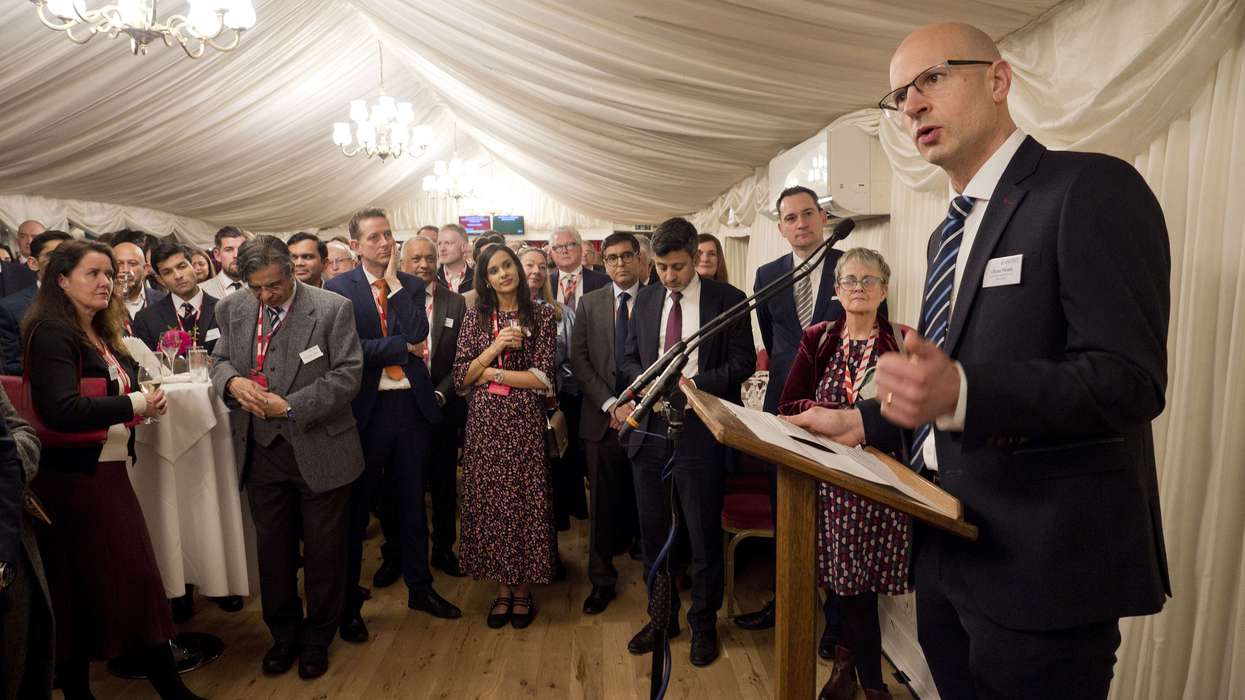Community pharmacies across England are facing intense and unsustainable pressure, with morale at breaking point and patient care at risk, says a survey by Community Pharmacy England (CPE).
According to Community Pharmacy England’s 2025 Pharmacy Pressures Survey: Staffing and Morale report, the sector is grappling with worsening staffing shortages, unmanageable workloads, recruitment difficulties, and financial strain.
The survey covered 4,300 pharmacies and 1,600 staff responded, and one of the key findings was that staffing and morale were under severe strain.
Nearly seven in ten pharmacy staff (70 percent) report negative impacts on their mental health and wellbeing, with a quarter of teams saying they are barely coping or not coping at all.
Almost all (95 percent) staff said shortages are increasing pressures, while 88 percent cited heavy workload as a top concern – up from 78 percent when the survey was first run in 2022.
More than 60 percent of pharmacy teams reported staffing shortages, and over one in five (21 percent) said their pharmacy had temporarily closed as a result.
Recruitment remains a challenge, with over half of pharmacy owners (54 percent) struggling to recruit permanent staff, and more than a third (37 percent) claim finding pharmacists is difficult.
Financial pressures are taking a toll on community pharmacies.
Nearly half (48 percent) pharmacy owners said that staffing costs are unsustainable. This has fuelled recruitment constraints, low morale, and temporary closures.
Impact on patients
The communities that rely on these pharmacies are facing the heat.
Around eight out of ten (81 percent) pharmacy staff said there has been an increase in patient waiting times.
Nearly six out of ten (57 percent) have said they have cut down on offering advice and services.
A third (33 percent) said their pharmacy has stopped providing some non-essential services, and nearly one in five (18 percent) have reduced opening hours.
The medicine supply issues continue to worsen, with 80 percent of staff saying sourcing problems are making it harder to cope – up from 75 percent in 2022.
More than half (54 percent) of pharmacy staff admitted that patient abuse has become a serious concern.
Pharmacy owners' woes
During the survey, some of the affected pharmacy owners shared accounts of challenges they are personally facing.
Anil Sharma, a community pharmacy owner in the East of England, said, “Too many pharmacy owners like me are working long hours each day just to keep the business afloat. My wife works the same long hours alongside me, but the reality is that the funding does not allow us to employ the kind of support every business needs. Alongside these pressures, I continue to care for patients who rely on me daily.
"I often see regular patients who are distressed when I have to explain their medicine hasn’t arrived because of supply issues. Parents also bring in their children with minor illnesses such as sore throat or earaches, and under Pharmacy First – despite all the challenges we face as a team – we make sure they are attended to.
"These are the realities of community pharmacy. I also regularly hear from colleagues on WhatsApp and Telegram who are facing the same struggles, many reaching out for advice or simply support to get through another day.”
Temitope Awofeso, a Kent-based pharmacy owner, who was forced to close his pharmacy, said, “The painful decision to close my pharmacy became unavoidable as my pharmacy succumbed to the sustained financial pressures on community pharmacies and the impossible environment created by years of underfunding, leaving me no option but to close our doors."
He said it was a difficult decision as his pharmacy was recently nominated for a Best Pharmacy Award in Kent.
"Closures are not about quality of service, but about an unsustainable funding system. The toll on my mental health was enormous.”
Deepening crisis
CPE chief executive Janet Morrison said, “Our survey lays bare the deepening crisis in community pharmacy staffing and morale. Pharmacy teams are under relentless pressure, affecting both their well-being and their ability to provide vital care. Many colleagues are exhausted, feel undervalued, and are uncertain about their future in the sector they love.
"Funding challenges are pushing many owners to halt recruitment, close their branches or even consider selling their pharmacies. Alongside this, work-life balance for pharmacy teams is under severe strain, adding to low morale across the sector."
Morrison pointed out that the report highlights the "human cost" behind the data, and lauded the dedication of professionals in keeping services running.
"We must work collaboratively across the NHS and government to ensure meaningful investment in community pharmacy, better workforce support, and a sustainable funding model.
"Only by tackling challenges head-on can we create a sustainable future for pharmacies and the patients they serve.”
Pharmacist Support chief executive Danielle Hunt said, “These latest figures are deeply concerning, but sadly not surprising. When 70 percent of pharmacy staff report that their mental health and wellbeing have been negatively affected, and one in four say they are barely coping, it underlines just how urgently the sector needs to act. With 32 percent of staff shortages linked to sickness which is often driven by stress and pressure, we’re seeing the real human cost of a profession under strain."
She said at Pharmacist Support, they come across pharmacists who are struggling to manage the pressures of their roles.
"Without meaningful investment and a joined-up approach to wellbeing across the profession, we risk losing dedicated people to burnout and exhaustion. To create a sustainable future for pharmacy, wellbeing must be recognised and supported at every level, including being built into policy, funding, and workforce planning.
"The people behind the counter are essential to patient care, and it’s time their well-being was treated as equally essential.”
Not surprising: CCA chief
CCA chief executive Malcolm Harrison said, “Pharmacy teams are working extremely hard under sustained pressure from an ever-increasing workload and staff shortages.
"Patient demand continues to rise, with significant increases in dispensing and clinical services, yet funding has simply not kept pace. The volume of prescription items dispensed by pharmacies has increased by around 16 percent in the past decade.
"On top of this workload increase pharmacy teams have been asked to deliver a significant increase in the number of clinical services for the NHS whilst all the while managing a 30% real-terms decrease in funding.
"It is therefore, unfortunately, not surprising that this survey highlights some real concerns regarding staff morale. Additional investment in the sector is critical to enable businesses to invest in their workforce and systems, to ensure that capacity can meet growing demand, and to ease pressures currently facing pharmacy teams”.












